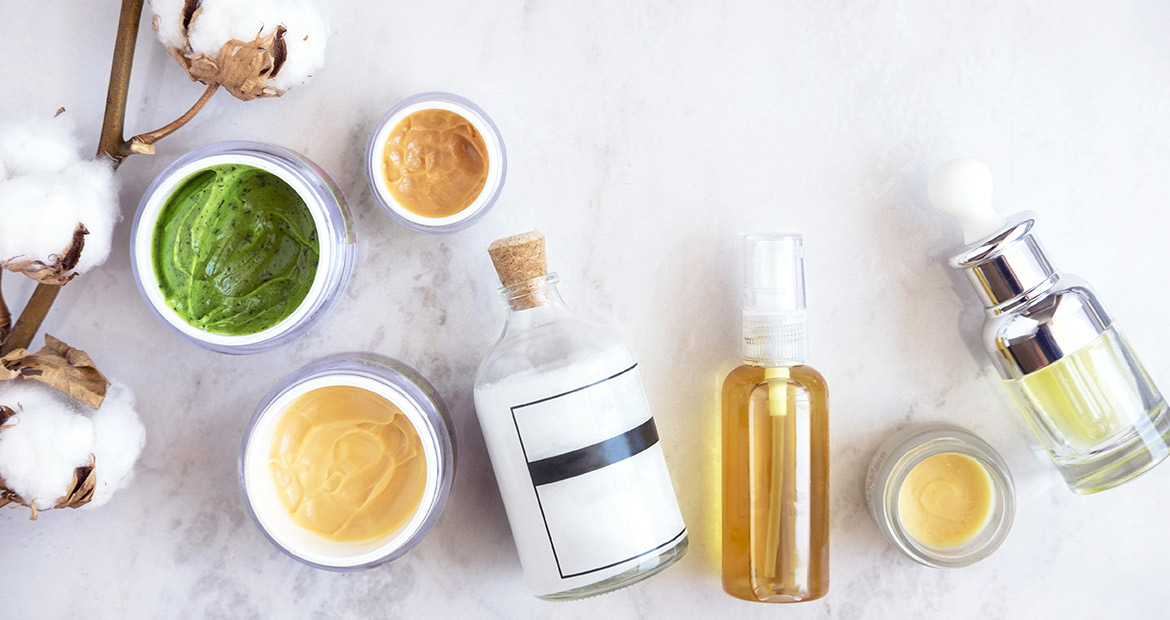Skincare is an important aspect of health and beauty. Creating an effective skincare routine necessitates an accurate assessment of the skin's demands. The answer to the question of what an ideal skincare routine should look like is determined by the person's skin type and personal demands.
The solution to the question of how a skincare routine should be is through consistent and diligent practice. Creating a skincare routine entails several procedures, ranging from washing to moisturizing the skin. Skincare order is critical in this process, and each step should be designed to complement the preceding one.
Care Methods Based on Skin Type

Skin care treatments tailored to skin type are the foundation of an effective skincare program. Each skin type has unique care requirements that should be considered while developing a skincare routine.
Sensitive skin should be treated with gentle treatments, whereas oily skin should be washed with formulae that do not clog pores and regulate sebum production. While a balanced care program can help normal skin seem healthy, dry skin requires thorough moisturizing. Combination skin requires treatments that regulate oiliness in the T-zone while still moisturizing other areas.
Developing A Care Routine for Sensitive Skin

Sensitive skin demands extra attention and care. When developing a care routine for this skin type, products that do not irritate the skin, contain no allergens, and have a mild formula should be used. Daily cleansing should be performed in a way that does not aggravate sensitivity, followed by moisturizing and calming products that strengthen the skin's barrier function. The weekly skincare routine should involve deep washing and moisturizing, but the products used should be gentle enough not to irritate the skin.
Developing A Care Routine for Normal Skin Type

Normal skin is typically the least troublesome skin type and can be kept looking healthy with a well-balanced skincare regimen. Cleansing, toning, moisturizing, and mask application are the recommended skincare regimen stages for normal skin types. Products designed for this skin type should safeguard the skin's natural balance while also providing nourishment. Routine skin care provides the essential care that the skin requires, allowing it to maintain vitality and freshness.
Developing a Routine for Oily Skin

Oily skin demands a specific skincare regimen because it is prone to clogged pores and acne production. The routine should contain products that deeply cleanse the pores, regulate sebum production, and mattify the skin. Daily washing should include salicylic acid-containing products,
followed by pore-tightening toners. Detoxifying masks and light moisturisers should be included to the weekly skin care program to help oily skin look clean and balanced.
Developing a Care Routine for Combination Skin A mixed skin type has both oily and dry patches, necessitating a balanced skincare regimen. The routine for combination skin should include items that regulate oiliness in the T-zone while effectively moisturizing dry areas. Daily washing should be done with products tailored to the skin's specific demands, followed by balanced moisturizing. The weekly skincare program should balance the skin with targeted masks and serums while also providing adequate care for both areas.
How Can I Make Skin Care?

A good skin care routine includes cleaning, toner, masks, serums, and moisturizers. The skin care sequence guarantees that the skin's demands are met in the proper order. Cleansing helps remove dirt and makeup remnants from the skin. Toner keeps the skin's pH balanced and tightens the pores. Mask treatments provide the additional care that the skin need. Serums address specific skin issues, whilst moisturizers maintain skin hydrated. These methods should be used as part of a weekly skincare program.
Clean Your Skin

Cleansing the skin is the most important step in any skincare practice. This treatment removes dirt and makeup residues from the skin's daily exposure and allows it to breathe. Cleansing should be gentle and effective, without disrupting the skin's natural oil balance. Using a cleanser appropriate for your skin type improves the success of this procedure. This should be the first step in your skincare routine every day.
Use Tonic

After cleaning the skin, use a tonic to help restore its pH balance. Tonics constrict pores, soothe the skin, and improve the absorption of subsequent care products. Choosing a tonic that is appropriate for your skin type improves the efficacy of your skincare routine—a tonic serves as a crucial bridge, preparing the skin for moisturizing and other care products.
Make a Mask

Mask use should be part of your week skincare routine. Masks can thoroughly cleanse, moisturize, and nourish the skin. Choosing the proper mask for your skin type and needs improves skin look and combats a variety of skin issues. Mask application is a revitalizing component of the skincare routine, providing extra care and attention to the skin.
Use With Serum

Serums are treatments that contain highly concentrated active chemicals and are intended to treat certain skin conditions. Including serums in your skincare routine promotes healthier, brighter-looking skin.
Serums target specific skin issues, such as fine lines, wrinkles, and spot therapy. Choosing a serum that's appropriate for your skin type and requirements is a critical step in your skincare routine.
Moisturize Your Skin

Moisturizing the skin is a necessary component of every skincare program. Moisturizers can help keep the skin hydrated, making it smoother and more supple. Choosing a moisturizer that is appropriate for your skin type moisturizes and protects your skin. Moisturizing the skin after cleansing and toning is an important part of the daily skincare routine for keeping the skin healthy and vibrant.
The solution to the question of how routine skin care should be is to develop a comprehensive skincare routine that takes into account your unique skin needs and lifestyle. Identify your skin type and use the best skincare strategies for achieving a healthy and vibrant complexion.
A skincare regimen consists of several phases, including cleaning your skin, using toners, using appropriate masks and serums, and ultimately moisturizing your skin to protect it.
Each phase includes extensive answers to the topic of how skincare should be, as well as a full roadmap for developing a skincare routine. Skincare is one of the keys to preserving the health and attractiveness of the skin through consistent and deliberate actions. Choosing products that promote skin health and following a regular care routine will help you attain long-term results.






















